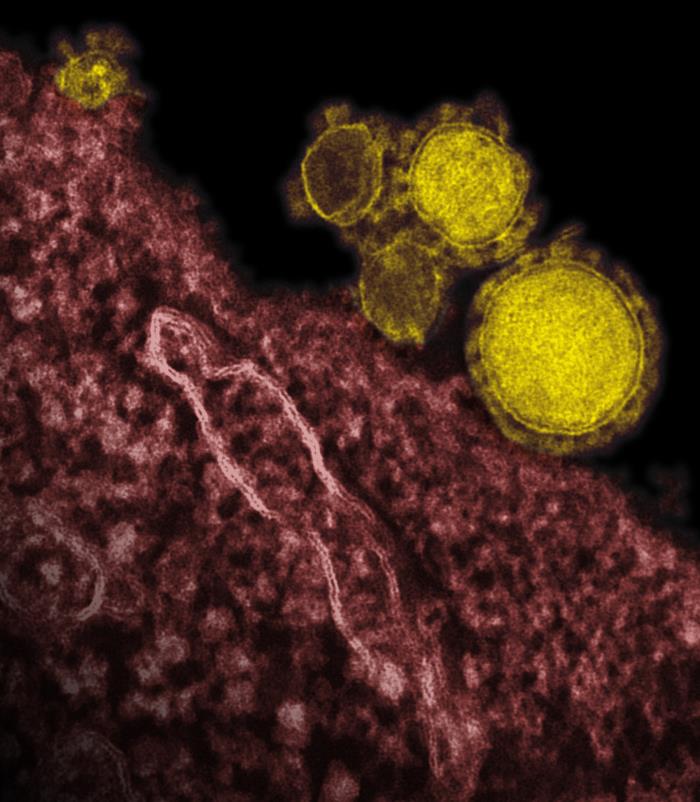On Sunday, Saudi Arabia health officials reported an additional six cases of Middle East respiratory syndrome coronavirus (MERS-CoV) infection in the capital of Riyadh, bringing the outbreak total, almost exclusively hospital-associated, to 90 for the month of August.
More than half (53) have been traced to National Guard Hospital.
In a release yesterday from the Saudi Arabia Ministry of Health (MOH), in an attempt to pacify a concerned public, discussed containment efforts taken in the outbreak.
This outbreak tested several of the new procedures put in place recently by the Ministry to respond to such outbreaks and those systems have worked extremely well to date in containing the situation.

They go on to list steps they have taken to include: A Rapid Response team sent to National Guard hospital immediately after the infections were identified as a MERS-CoV outbreak. This team is comprised of leading experts in infections disease who supported the local medical teams in effective containment procedures; Field Epidemiology team deployed to the site to support on-site analysis and transmission specifics and Public Health Team is on-site supporting comprehensive tracking, tracing and testing of all persons in the contact circle of suspected and at-risk cases. The Ministry has sampled and tested more than 5,700 samples to support early identification among all at risk individuals and give them the “all clear” when they are identified as having no infection.
In addition, the Ministry worked with the National Guard staff to reduce streamline the facilities to better address the MERS-CoV issue specifically by deferring all elective admissions and procedures.
The Ministry of Health also detailed steps taken to bolster the preparedness of medical facilities across the country to prevent another outbreak, including:
- Deployed Infectious Disease Specialist teams to all Riyadh hospitals. This is meant to increase coverage surrounding the infection area and ensure our facilities are running all necessary safety protocols. The Minister of Health personally met with the directors of all Riyadh hospitals to lead the coordination.
- Established an open network connecting the medial teams throughout our national hospital network. This enables them to be fully connected in real time and able to monitor, communicate and learn from their colleagues about MERS-CoV activity.
Collectively, these containment steps have been highly effective. MERS-CoV is a tricky disease. It can crop up in unlikely places but these rapid response capabilities, built in coordination with global health partners such as the WHO, are essential tools in helping us to beat this challenge.
Reminiscent of the South Korea outbreak a short time ago, Australian virologist, Ian MacKay, PhD writes:
We propagate epidemics. We create our own headaches in this arena. Many viruses wouldn’t break out if we didn’t create the circumstances for an outbreak. The biggest headache? Infected patients who spread virus to uninfected patients and health workers when they are in unprotected close contact in a healthcare setting.
We can go on and on bemoaning the many knowledge gaps in our understanding of MERS-CoV – we did and listed some recently – but that’s really an academic endeavour in the short term. Three years later (not really short term) we are still seeing the basic problem of hospitals becoming hubs for MERS-CoV transmission, MERS disease and the death of some of those most vulnerable to MERS-CoV infection. Hospitals. Places filled with already sick people. Sick people who can be made much, much more sick by a MERS-CoV infection.
Last week, researchers from the Perelman School of Medicine at the University of Pennsylvania reported on an experimental vaccine had prevented monkeys from contracting MERS in 100 percent of cases tested.
Robert Herriman is a microbiologist and the Editor-in-Chief of Outbreak News Today
Follow @bactiman63
Related:
- Idaho boy contracts Pasteurella multocida meningitis: What is Pasteurella multocida?
- Jimmy Carter: ‘I’d like for the last guinea worm to die before I do’
- California West Nile cases rise by 21 in past week, Butte County hit hardest

